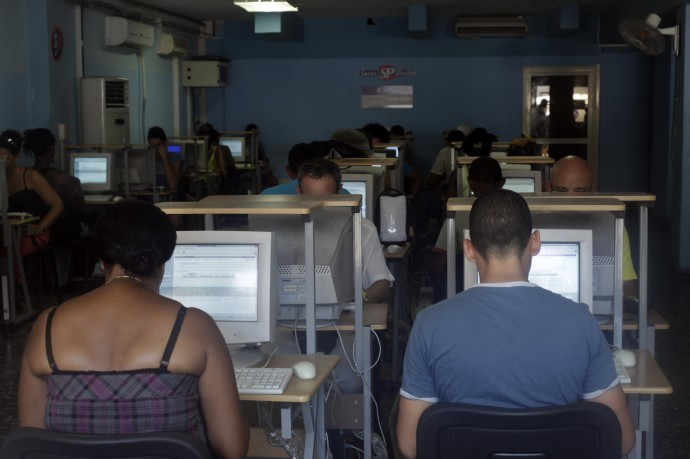Ultra Fast Computing Possible With New Material

Thanks to a new class of materials, computers can get smaller and faster, enabling them to process information 1,000 times faster than today.
The phase changing materials (PCM) when used in place of silicon can drastically impact size and speed of computer processors and memory, says a new study from the University of Cambridge, the Singapore A*STAR Data-Storage Institute and the Singapore University of Technology and Design.
Working with models of the new switching devices, the team has shown logic-processing operations can be performed very fast using particular combinations of ultra-short voltage pulses, which is not possible with silicon-based devices.
They used a type of PCM based on a chalcogenide glass, which can be melted and recrystallised in nanoseconds.
Basically, transistors used in computers and other gadgets are made of silicon which flips between the two states of conducting to process and store data. The new material flips between the two phases of crystalline and amorphous even faster.
While they have some shortcomings at present compared to silicon, these materials could eventually enable processing speeds between 500 and 1,000 times faster than the current average laptop computer, while using less energy.
The results are published in the journal Proceedings of the National Academy of Sciences.
Logic and memory
In these devices, logic operations and memory are co-located, rather than separated, as they are in silicon-based computers. Thus they save on time and energy, making them greener.
The traditional way of increasing the power of computers has been to increase the number of logic devices and simultaneously reducing their size, but there is a limit to this.
If the space between the devices is made too small, electrons stored in memory devices can tunnel across and result in data loss.
Present silicon-based logic and memory devices are in the scale of 20 nanometres (4,000 times thinner than human hair). But the PCM devices are smaller at around two nanometres.
The other method of increasing speed is by increasing the number of calculations by each device. Silicon cannot do more but PCM devices can.
While PCM devices have been slow in logical calculations so far, the present study reversed the order of phases and looked at their performance in the crystalline state and found improvement.
PCMs were originally used in optical-memory devices like rewritable DVDs. Now, they are starting to be used for electronic-memory applications and are slowly replacing silicon-based flash memory in some smartphones.
© Copyright IBTimes 2025. All rights reserved.





















